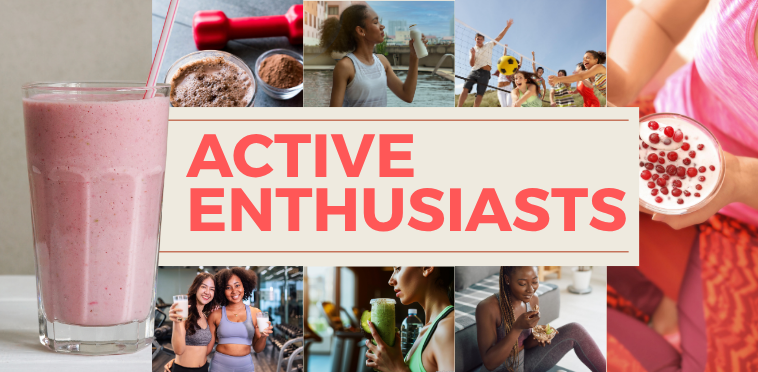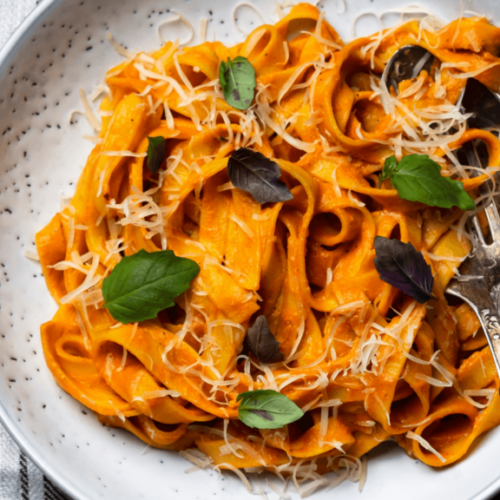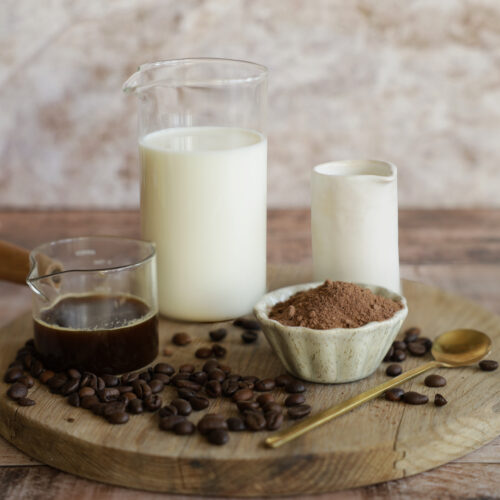
Fuel an Active Lifestyle with Dairy
Move More. Eat Smart. Live Well.
An active lifestyle is one of the most powerful choices you can make for your health. Regular movement supports your heart, strengthens muscles and bones, lifts your mood, and helps prevent disease. Yet, staying active today takes effort — modern life is fast-paced, technology-heavy and often stressful. True wellness comes not only from exercise, but also from nourishing your body, mind, and gut with the right balance of food, rest, and recovery.
What Does It Mean to Live an Active Lifestyle?
Being active is not limited to structured workouts or organised sports. It’s a mindset and way of living that values movement throughout the day. Walking instead of driving short distances, taking the stairs, or joining community activities such as parkrun, cycling clubs, or hiking groups are all meaningful ways to stay active.
In recent years, there’s been growing interest in new forms of activity — from CrossFit, HYROX fitness racing, and virtual coaching apps to outdoor sports that combine fitness and social connection. Whether your preference is the gym, group classes, or nature trails, the key is consistency and enjoyment.
Equally important is balance. Rest days, quality sleep, and mental recharge are essential for recovery and long-term performance. Setting digital boundaries and managing stress are as vital as any workout.
Nutrition: The Foundation of an Active Body
Physical activity increases the body’s demand for energy and nutrients. The type, duration and intensity of activity determine how much fuel your body needs — but the principle is simple: what you eat and drink directly affects how you perform and recover.
A balanced diet should include a mix of carbohydrates, protein, healthy fats, vitamins, minerals, and fluids to meet your daily energy needs and support overall health.
Carbohydrates for Energy
Carbohydrates are the body’s preferred fuel source, especially during exercise. Whole grains, fruits, vegetables, and legumes provide steady energy and fibre. Depending on your activity level, you may need 3–7 grams of carbohydrates per kilogram of body weight per day. Frequent high-intensity or endurance training may increase this requirement to as high as 10-12 g/kg/day.
Protein for Strength and Recovery
Protein helps repair and build muscle tissue. Aim for 1.2–2 grams of protein per kilogram of body weight per day, spread evenly across meals. High-quality protein sources such as milk, yoghurt, lean meats, eggs, and legumes provide the amino acids — including leucine — that are particularly effective for stimulating muscle growth after exercise.
Good Fats for Health and Support
Fats are also a useful energy source, especially during longer, lower-intensity activities and support hormone production, brain function, and vitamin absorption. Choose omega-3-rich foods like salmon, sardines, nuts, and seeds, which also help reduce inflammation, support recovery and improve gut health.
Hydration and Micronutrients Matter Too
Water is essential for nearly every function in the body — including muscle contraction and temperature regulation. Stay hydrated throughout the day, and drink according to your activity level, sweat losses, and climate. For most people, clean, safe water is the best choice; limit alcohol and caffeine, as both can contribute to dehydration.
Active individuals may also need slightly higher intakes of certain vitamins and minerals, especially those that support energy metabolism, bone strength, and immune health.
These include:
- Calcium, vitamin D, magnesium, and phosphorus for strong bones
- Iron and B vitamins for energy production and oxygen transport
- Zinc and antioxidants for immunity and recovery
Eating a wide variety of foods — plenty of fruits, vegetables, whole grains, and dairy — usually provides all the nutrients you need. Micronutrient supplements are only necessary when specific deficiencies or dietary restrictions exist.
The Gut–Brain Connection: Why Gut Health Supports Performance
Your gut plays a surprisingly powerful role in your health and performance. A balanced gut microbiome — the community of beneficial bacteria in your digestive system — supports stronger immunity, better digestion, and even improved mental health.
Around 70–80% of immune cells are located in the gut, where they interact closely with gut microbes. When the gut microbiome is disrupted (by stress, poor nutrition, or illness), it can lead to inflammation, reduced immunity, and low mood.
Support your gut by including:
- Fibre-rich foods like fruits, vegetables, legumes, and whole grains
- Fermented foods such as yoghurt and kefir for beneficial bacteria
- Polyphenol-rich foods such as berries, leafy greens, and turmeric, which act as antioxidants and prebiotics
A healthy gut supports not only digestion, but also your energy, focus, and motivation to stay active.
Timing Your Nutrition
When you eat can be just as important as what you eat.
- Before activity: Have a meal or snack that includes carbohydrates to top up your energy stores.
- During longer workouts (>60 minutes): Replenish with small amounts of carbohydrates (sports drinks, gels, or fruit) and fluid.
- After exercise: Focus on recovery — rehydrate, refuel, and repair. A combination of carbohydrates and protein (for example, a smoothie or milk-based drink) helps replace lost energy and repair muscle tissue.
Dairy: A Smart Choice for Active People
Dairy products — especially milk and yoghurt — are natural, nutrient-rich allies for an active lifestyle.
- They provide high-quality protein (whey and casein) to rebuild muscle.
- Contain carbohydrates and electrolytes like sodium and potassium for hydration and energy replenishment.
- Supply calcium, magnesium, and vitamin D for strong bones and injury prevention.
Flavoured milk (e.g. chocolate milk), for instance, is a cost-effective and scientifically supported post-exercise recovery drink that aids muscle repair and fluid replacement.
Fermented dairy products such as yoghurt and kefir also contribute beneficial bacteria that support gut health — linking physical recovery with immune resilience.
Simple Habits to Sustain Your Active Lifestyle
- Eat regular meals and snacks — skipping meals can lead to fatigue.
- Prioritise whole and minimally processed foods most of the time.
- Enjoy a variety of coloured fruits and vegetables every day.
- Limit ultra-processed foods, sugary snacks, and excessive alcohol.
- Ensure an adequate intake of iron and calcium, especially for women.
- Get enough sleep and rest, and listen to your body’s signals.
Learn More
For a deeper dive into the science and practical tips behind an active lifestyle, download our expert-reviewed article:
Download “Nutritional Considerations to Sustain a Healthy and Active Lifestyle” (PDF)
For more information, read about Milk in Sport here.
Discover evidence-based advice on how to eat, move, and recover for lifelong vitality and wellbeing.








